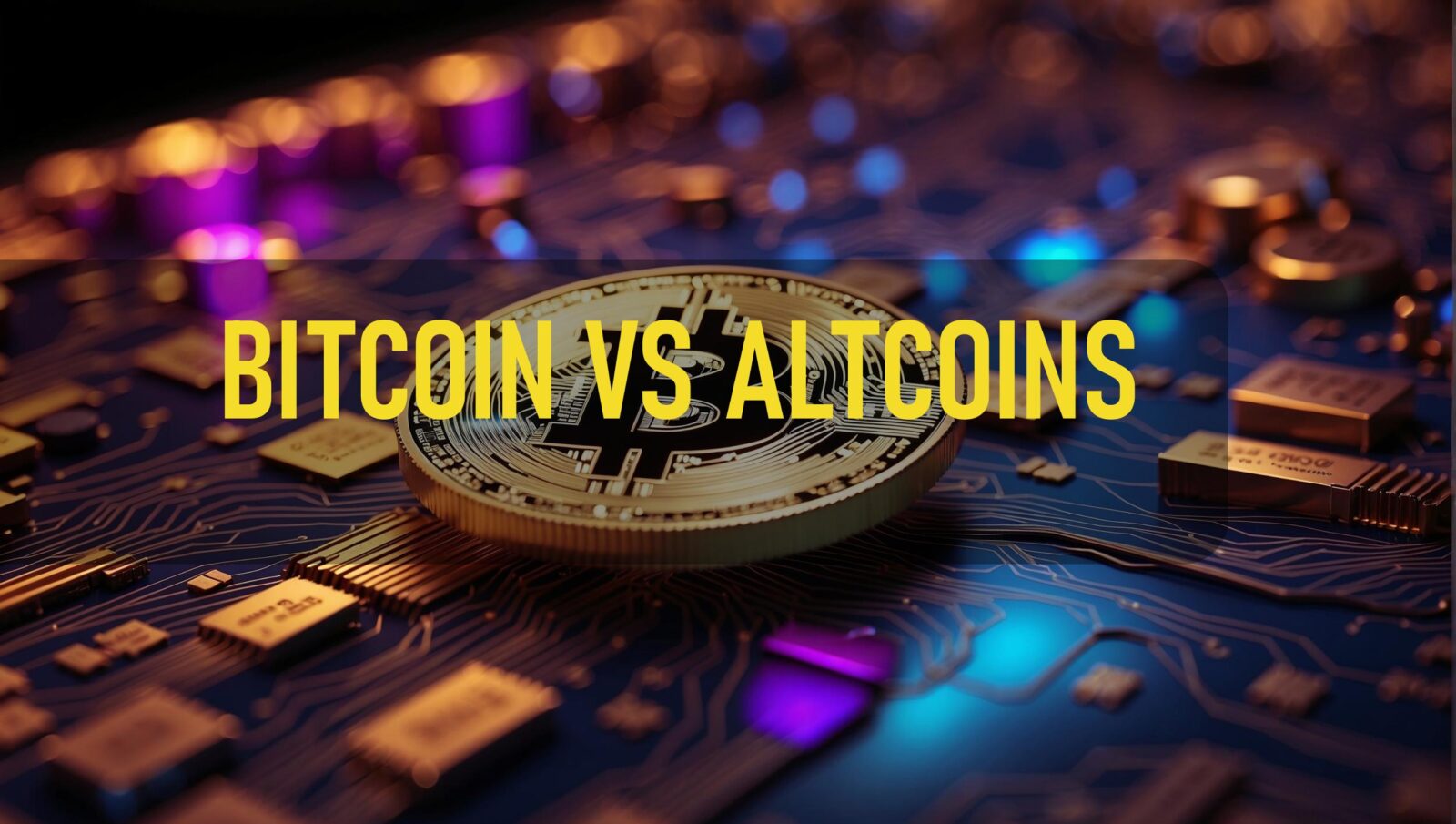When talking about cryptocurrencies, Bitcoin is the undisputed leader, known for its pioneering role in decentralizing finance and creating a new digital asset class. However, the rise of altcoins cryptocurrencies other than Bitcoin has created a vast and often confusing market for investors. While some altcoins bring innovation to the table, many of them are little more than speculative ventures or outright scams.
In this article, we’ll compare Bitcoin with altcoins, discuss the challenges of investing in altcoins, and explain why Bitcoin remains the best investment in the cryptocurrency space.
What is Bitcoin?
Bitcoin, launched in 2009 by the pseudonymous creator Satoshi Nakamoto, was the first cryptocurrency designed as a peer-to-peer digital currency. It operates on a decentralized blockchain, where transactions are validated by miners using a proof-of-work consensus mechanism. Bitcoin’s primary goals are to act as a store of value, medium of exchange, and a decentralized alternative to traditional fiat currencies.
Key Features of Bitcoin:
- Decentralization: No single authority controls Bitcoin. It’s powered by a global network of nodes and miners.
- Limited Supply: There will only ever be 21 million Bitcoins, making it deflationary.
- Security: Bitcoin is secured by a highly robust and proven proof-of-work mechanism.
- Proven Track Record: Bitcoin has been in operation for over a decade and remains the most valuable and widely accepted cryptocurrency.
What Are Altcoins?
Altcoins, or “alternative coins,” refer to all cryptocurrencies other than Bitcoin. Some of the most well-known altcoins include Ethereum (ETH), Litecoin (LTC), Ripple (XRP), and Cardano (ADA). While some altcoins aim to improve upon Bitcoin’s perceived limitations (such as speed, scalability, or smart contract functionality), many are either speculative or outright fraudulent.
Types of Altcoins:
- Stablecoins: Cryptocurrencies that aim to maintain a stable value by being pegged to a fiat currency (e.g., USDT, USDC).
- Utility Tokens: Coins that are used to access a product or service within a specific ecosystem (e.g., Binance Coin or Uniswap).
- Privacy Coins: Cryptocurrencies that focus on privacy and anonymity, such as Monero (XMR) and Zcash (ZEC).
- Meme Coins: Cryptos often driven by community hype, with no substantial underlying use case (e.g., Dogecoin, Shiba Inu).
- Security Tokens: Represent ownership in assets such as stocks or property.
While many of these altcoins offer new features and use cases, the vast majority fall into the category of high-risk investments or outright scams.
Why 99% of Altcoins Are Scams
Although some altcoins bring innovation and legitimate use cases to the market, it’s important to recognize that 99% of altcoins are scams or highly speculative. Here’s why:
1. Lack of Transparency
Many altcoins are launched with little to no transparency about who the developers are, how the coin works, or what its real-world use case is. This makes it easy for scammers to pump up the price of a coin and then disappear with investors’ funds—a classic scam known as a rug pull.
2. Pump-and-Dump Schemes
Altcoins are often subject to pump-and-dump schemes, where the price of the coin is artificially inflated by misleading promotion. Once enough investors buy into the hype, the scammers dump their holdings, causing the price to crash and leaving retail investors with significant losses.
3. Unrealistic Promises
Many altcoins make grand promises about solving complex problems or revolutionizing industries without any real roadmap or technological infrastructure. These promises are often nothing more than marketing tactics designed to lure in investors.
4. Low Liquidity
Many altcoins suffer from low liquidity, meaning that there aren’t enough buyers or sellers to allow for smooth trading. This makes it easy for scammers or manipulators to control the price of the coin, making it highly volatile and prone to large price swings.
5. No Real-World Use Case
While Bitcoin has established itself as a store of value and medium of exchange, many altcoins have no clear purpose beyond speculation. Their value is driven primarily by hype, and once that hype dies down, the coin becomes essentially worthless.
6. Anonymous Teams and Developers
Many altcoin projects are created by anonymous teams that do not disclose their identities. While Bitcoin’s creator, Satoshi Nakamoto, also remains anonymous, Bitcoin is decentralized and has stood the test of time. In contrast, many anonymous altcoin creators disappear after their initial coin offering (ICO) or token launch, leaving investors with worthless coins.
Why Bitcoin is a Better Investment
While the world of altcoins can be exciting and full of opportunities, Bitcoin remains the safest and most reliable investment in the cryptocurrency space. Here’s why:
1. Proven Security and Stability
Bitcoin’s proof-of-work mechanism has been securing the network for over a decade. With thousands of miners and nodes validating transactions, Bitcoin’s network is the most secure in the cryptocurrency space. Bitcoin has never been hacked, and its decentralized structure ensures that no single entity can manipulate or control it.
2. Decentralization
Unlike many altcoins, which are often controlled by a small group of developers or companies, Bitcoin is fully decentralized. No central authority controls its development or issuance. This decentralization makes it immune to censorship and gives it a significant advantage over altcoins that are often centralized.
3. Limited Supply
Bitcoin’s capped supply of 21 million coins makes it deflationary, meaning that its scarcity increases its value over time. This is in stark contrast to many altcoins, which have an unlimited supply or an unclear inflation model, making them less valuable as a store of wealth.
4. Global Acceptance
Bitcoin is widely accepted by institutions, corporations, and individuals alike. It is increasingly being used as a store of value, a hedge against inflation, and even as a form of payment in some regions. While a few altcoins have gained some adoption, none come close to the global recognition and usage of Bitcoin.
5. Institutional Investment
Large institutional investors, such as hedge funds and publicly traded companies, have begun to allocate part of their portfolios to Bitcoin. This institutional backing gives Bitcoin more legitimacy and stability compared to altcoins, which are often seen as too speculative for serious investment.
6. Store of Value
Bitcoin has been referred to as “digital gold” due to its ability to store value over time. While Bitcoin’s price can be volatile in the short term, it has consistently grown over the long term, making it a reliable hedge against inflation and economic uncertainty. Altcoins, on the other hand, are much more prone to wild price swings and rapid devaluation.
Bitcoin vs. Altcoins: Key Differences
| Feature | Bitcoin | Altcoins |
|---|---|---|
| Purpose | Store of value, medium of exchange | Varies: some focus on privacy, smart contracts, or niche applications |
| Security | Highly secure, proven over time | Varies, often less secure and vulnerable to hacks or scams |
| Decentralization | Fully decentralized | Often controlled by small groups or centralized teams |
| Supply | Limited to 21 million coins | Varies; many altcoins have unlimited or unclear supply limits |
| Investment Risk | Lower risk, long-term growth | Higher risk, speculative, many are scams or unsustainable |
| Adoption | Global acceptance by institutions and individuals | Limited adoption, with few exceptions (e.g., Ethereum) |
| Liquidity | Highly liquid, traded on all major exchanges | Lower liquidity, making altcoins more volatile and prone to manipulation |
| Volatility | Less volatile compared to altcoins | Often extremely volatile due to speculation and low market caps |
| Longevity | Over a decade of proven stability | Many altcoins disappear within a few years, or even months |
| Institutional Backing | Supported by major institutional investors | Rarely backed by institutions, with some exceptions |
Conclusion: Stick with Bitcoin for Long-Term Success
While the allure of making quick profits with altcoins can be tempting, the reality is that 99% of altcoins are scams or highly speculative investments with no real long-term value. Altcoins often operate in a high-risk, high-reward environment, where a small number of winners emerge, but most end up failing or defrauding their investors.
On the other hand, Bitcoin remains the most reliable and secure cryptocurrency, offering long-term growth potential, global adoption, and a proven track record of security. If you’re looking to invest in cryptocurrency, Bitcoin is a far better option for protecting your wealth and ensuring steady growth over time.






Leave a Reply